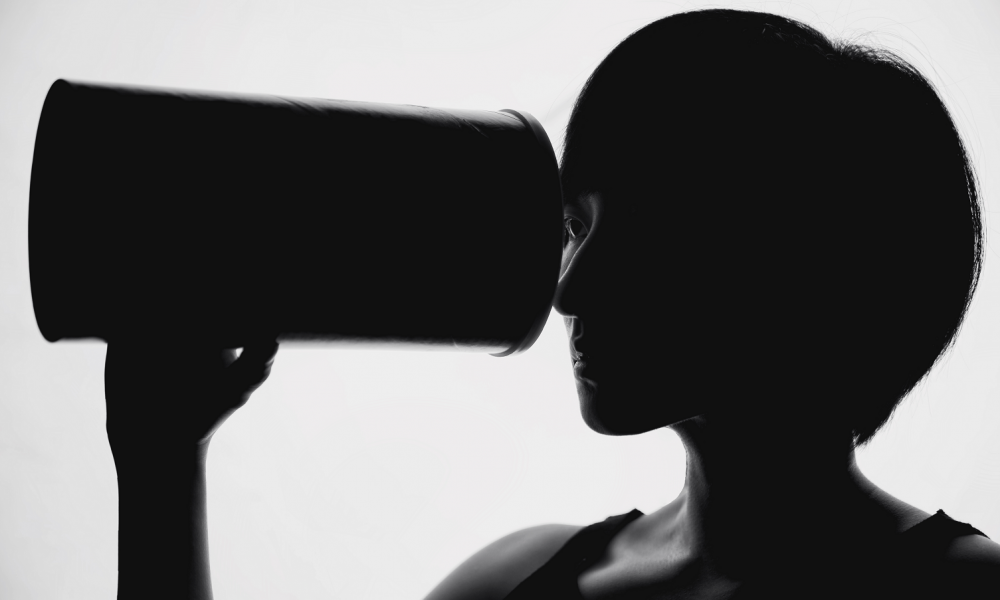

Today we’d like to introduce you to Yiwei Chen.
So, before we jump into specific questions, why don’t you give us some details about you and your story.
I’m a director, cinematographer and editor. I came to the U.S. in 2016 for graduate school in films in School of Visual Arts. Before that, I was a video journalist in Shanghai.
My instinctive answer to the question how I got where I am today was, “it kinda just happened.” After working as a video journalist for a few years in Shanghai, I felt like I hit a bottleneck in both life and career. I wasn’t able to go after the stories I wanted to due to those bureaucratic issues of the company I worked; meanwhile there was nothing going on with my life either. I was stuck somewhere. I knew I needed a breakthrough at that point.
So I ended up looking for a new job and applying for schools oversea simultaneously, and I decided that I’d take whichever offer that comes first. Then here we are.
Graduated in 2018, instead of going back home, I decided to stay here to continue my adventure with my new identity as a filmmaker. Journalism and documentaries are both in-depth and informative resources which spark conversations. Part of my motivation to shift my career was that I wanted to broaden the dimension of telling stories. That’s it. I think documentaries matter now more than ever in this “post-truth” era we live in, there’s just so much going on that need storytellers to form people’s real-world experiences.
Great, so let’s dig a little deeper into the story – has it been an easy path overall and if not, what were the challenges you’ve had to overcome?
In the first year, I just got to New York, before I started thinking about my artistic purposes there were several other blocks I had to stride first – language barrier; cultural difference, awkward economic situation and tense family relationship. The last thing my parents wanted me to be in the world is an artist. My mom works in finance, my dad is a failed musician who believes in Utopia. The idea I was about to be an artist drove my mom crazy as she was worried she’s gonna afford two losers in this family. I believe most Asian parents hold together with this mindset that being an artist is how you end up being a homeless. Despite everything, at the end of the day, they supported me financially. I promised to pay them back though. Having an MFA doesn’t automatically make you a successful artist. I guess I’m still halfway through proving them I won’t end up sleeping on the street.
When I was struggling with my thesis film, I met a feminist rapper also a social activist from Mexico, her name is Audry Funk. When I first met her, we bonded right away, as pepper lovers and newcomers to this country. We shared a lot in common, personality-wise and value-wise. Eventually, she became my thesis subject. During the time I was making that film, I was going through a huge identity crisis. I got lost in terms of what kind of art I wanted to create; what message I wanted to send through my work; who I really am as an Asian, a woman and a filmmaker. I felt like I was so many things, yet I was nothing.
I’ve always been caught up with critical view of social and cultural issues, the political climate and social environment here is tremendously different than where I come from. I never saw myself special as a minority until I came to the states. I think making my thesis film really got me started to think about my vision as a documentary filmmaker, which is to make invisibles visible. Everybody lives in their little bubbles, they only see the reflections of their own lives. I guess part of my job is to poke a little hole for them to see through.
My motto at this moment of my life: Stand my ground, open my mind.
Studio Socius – what should we know? What do you do best? What sets you apart from the competition?
Founded in 2019, Studio Socius is a production company I started with my partner Shaoyi Zhang who is a great photographer and producer.
Apart from producing non-fiction films, we as a production company, have worked with commercial brands and editorials as well. Key focuses in our work are women, youth culture and creatives. Having engaged subjects as diverse as the immigrant rights movement, Asian-American hip-hop music and contemporary women’s voice, our work reproduces familiar visual and aural signs, arranging them into new conceptually cinematic journeys. We believe each client is unique with distinct values. I think our business vision is deeply merge our spirits and aesthetic philosophy in fine art to the commercial world.
What moment in your career do you look back most fondly on?
I think every time when I finished a project, I feel proud of myself. No matter if it’s a documentary or commercial project. I remember when my film Audry Funk was selected to premiere in New York Independent Film Festival, I was sitting with those audiences, watching my film screened in a theater, I couldn’t be more proud of myself at that moment. Then it took me to Japan, there I won the Best Documentary Film in MEIHODO International Youth Visual Media Festival. My editing work Noodle School has been shown in Brooklyn Film Festival and Short Fest. I think those are the moments I felt my efforts and struggles have been paid off.
Contact Info:
- Website: www.yiwei.video
- Email: [email protected]
- Instagram: https://instagram.com/studio_socius?igshid=21piqwc9k5s





Image Credit:
Yiwei Chen
Suggest a story: VoyageLA is built on recommendations from the community; it’s how we uncover hidden gems, so if you or someone you know deserves recognition please let us know here.



















